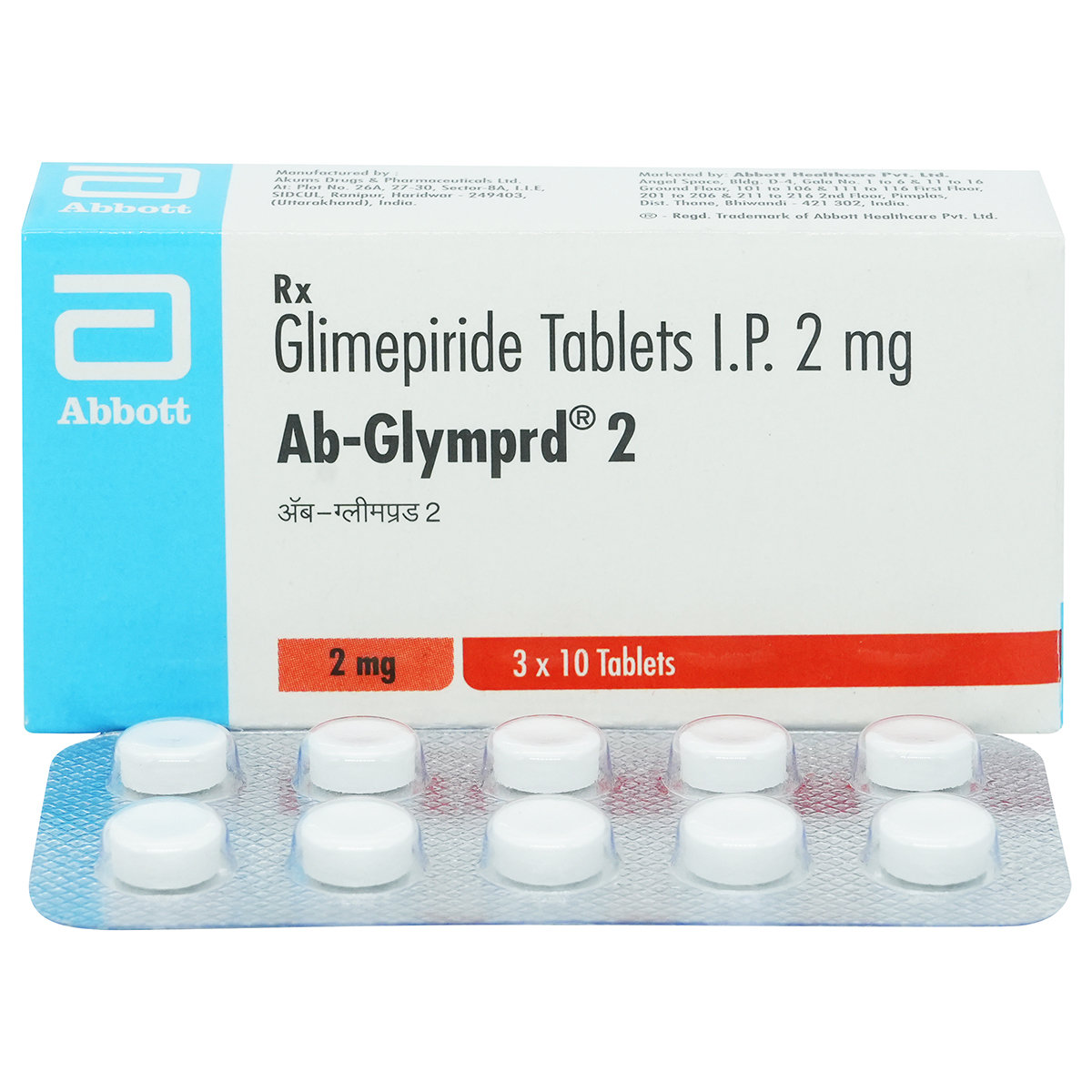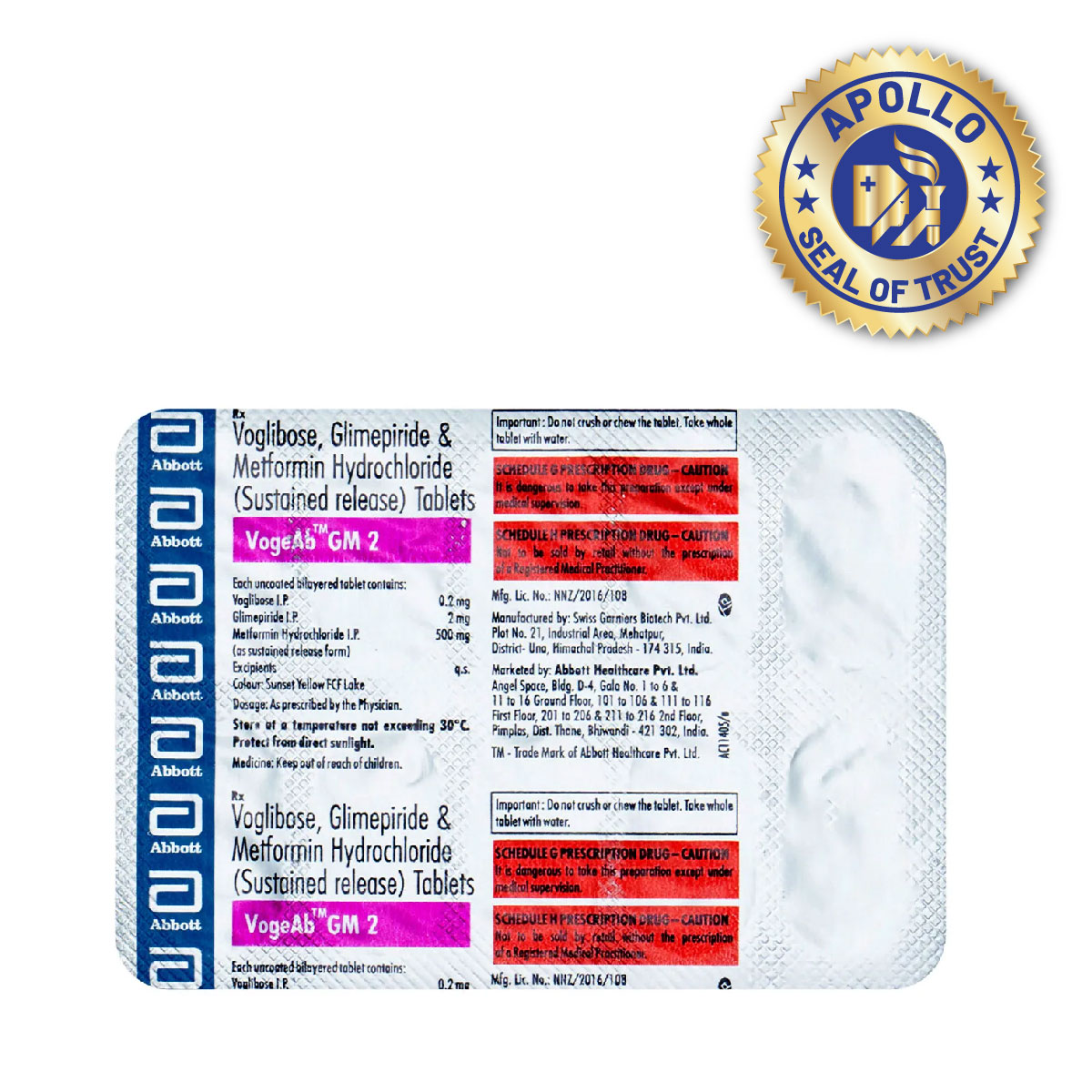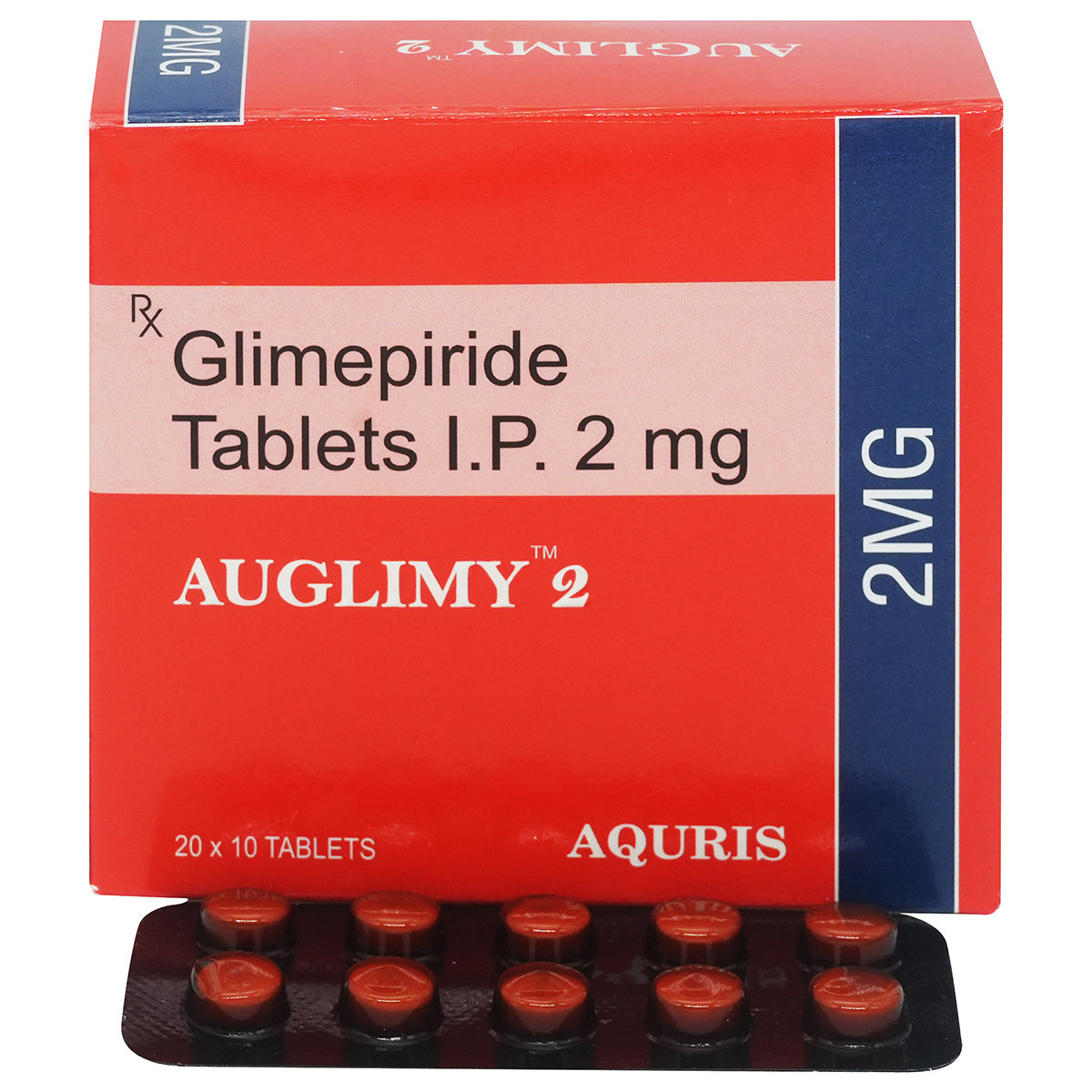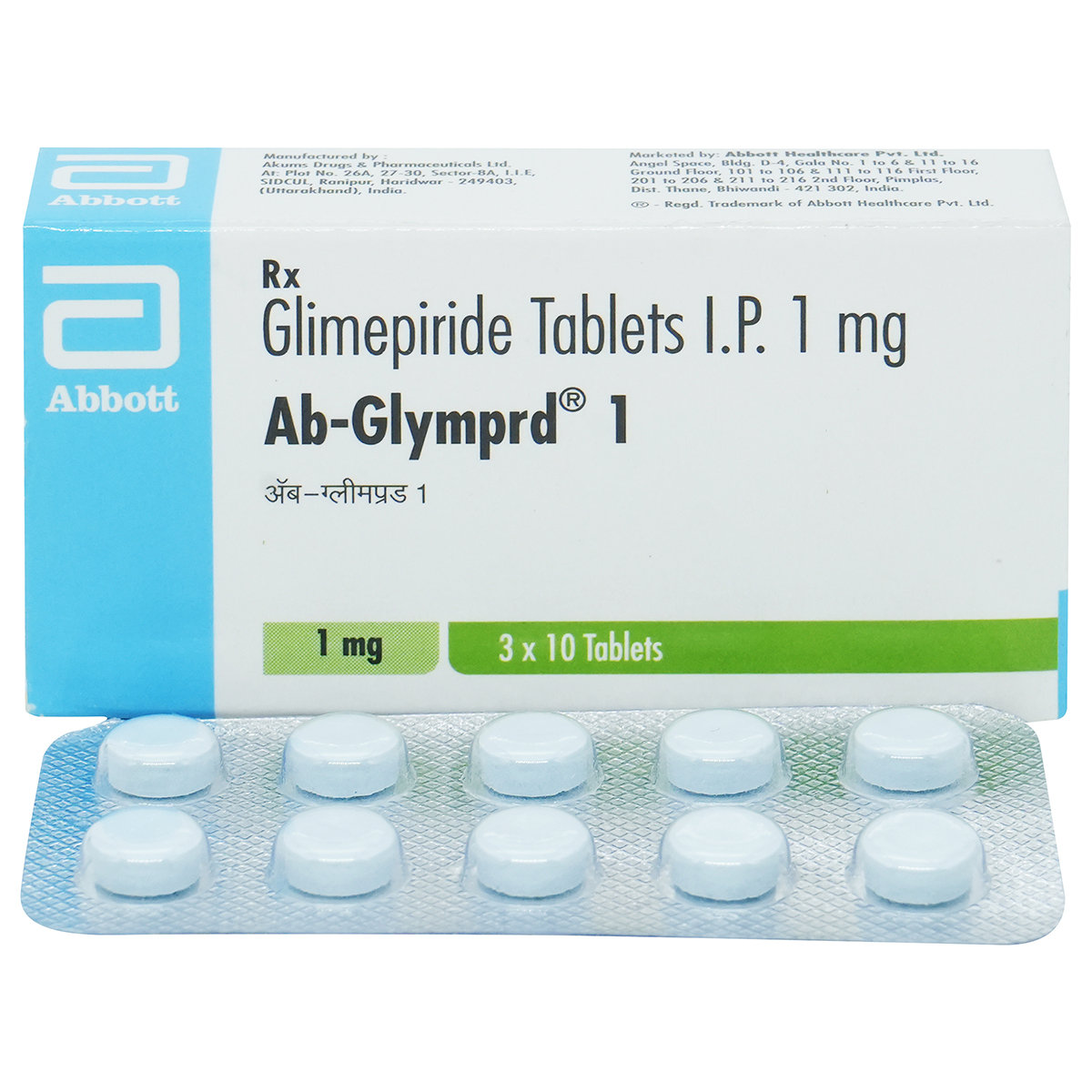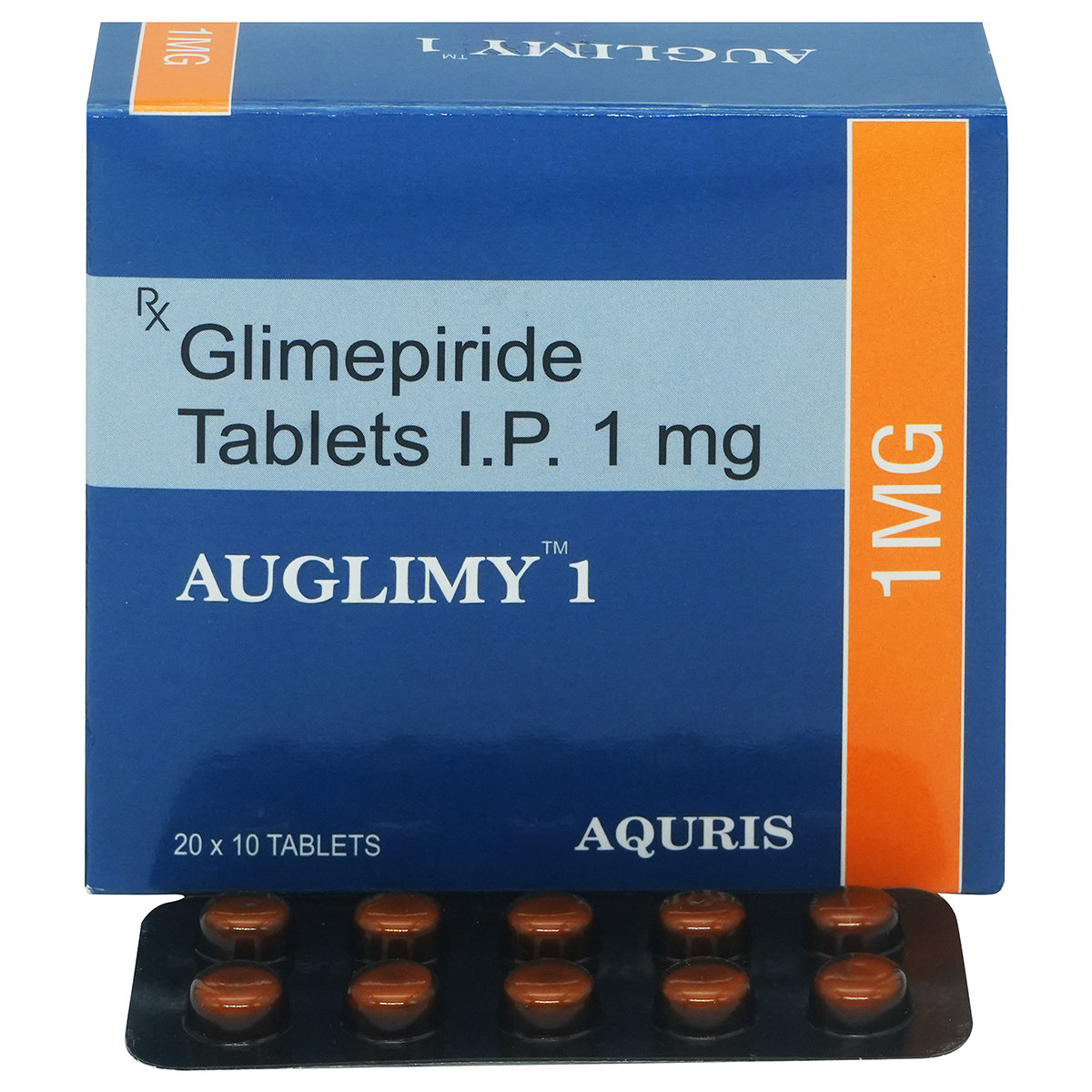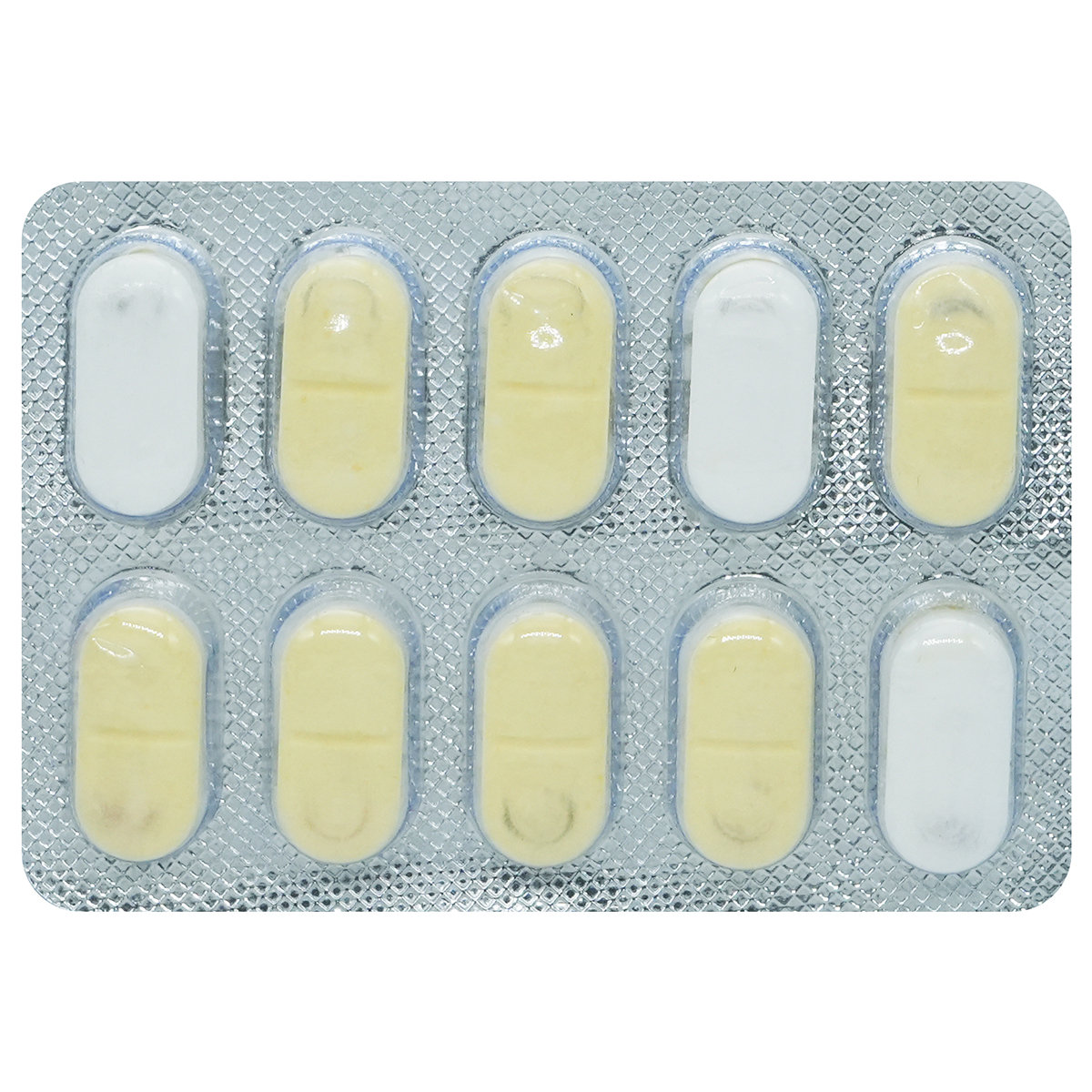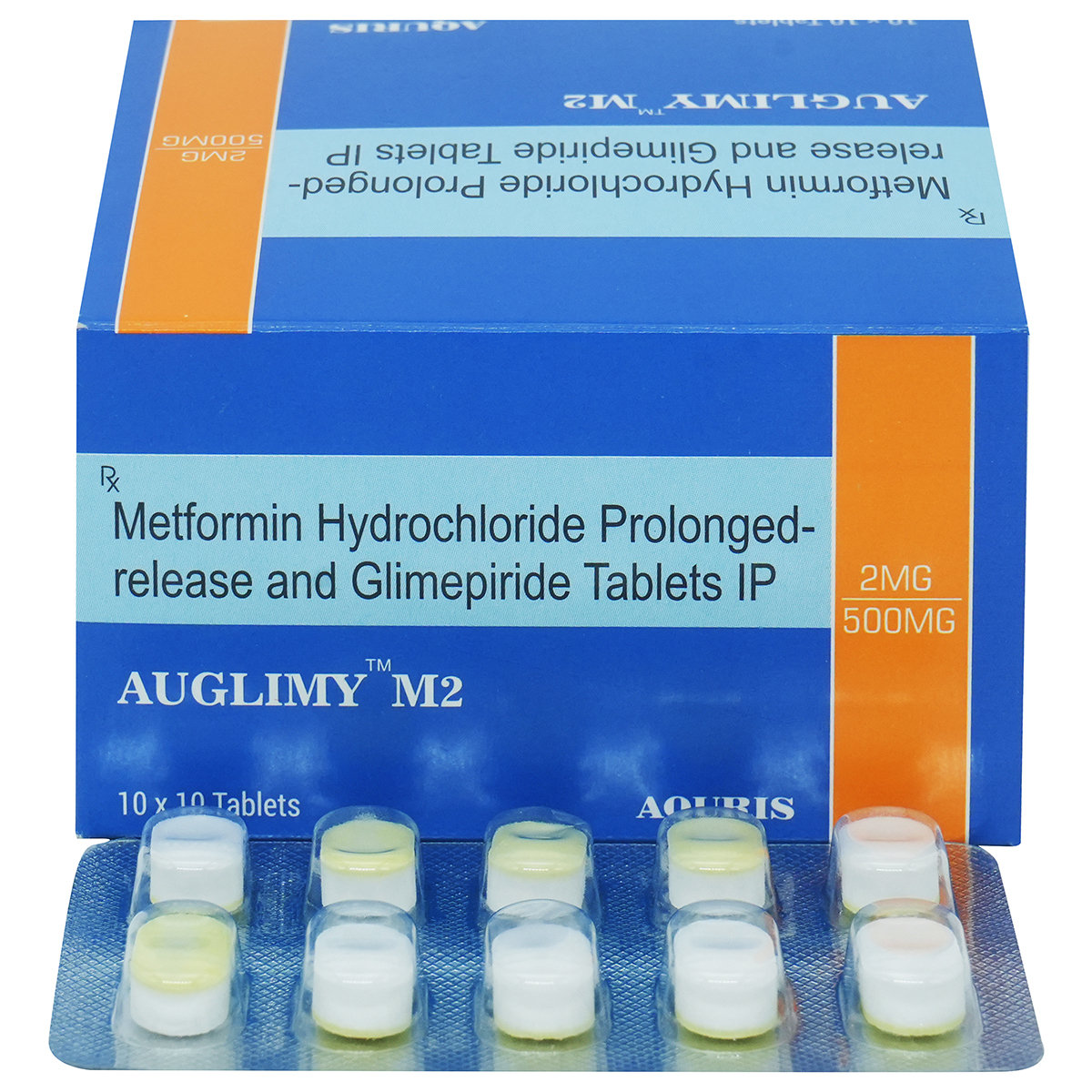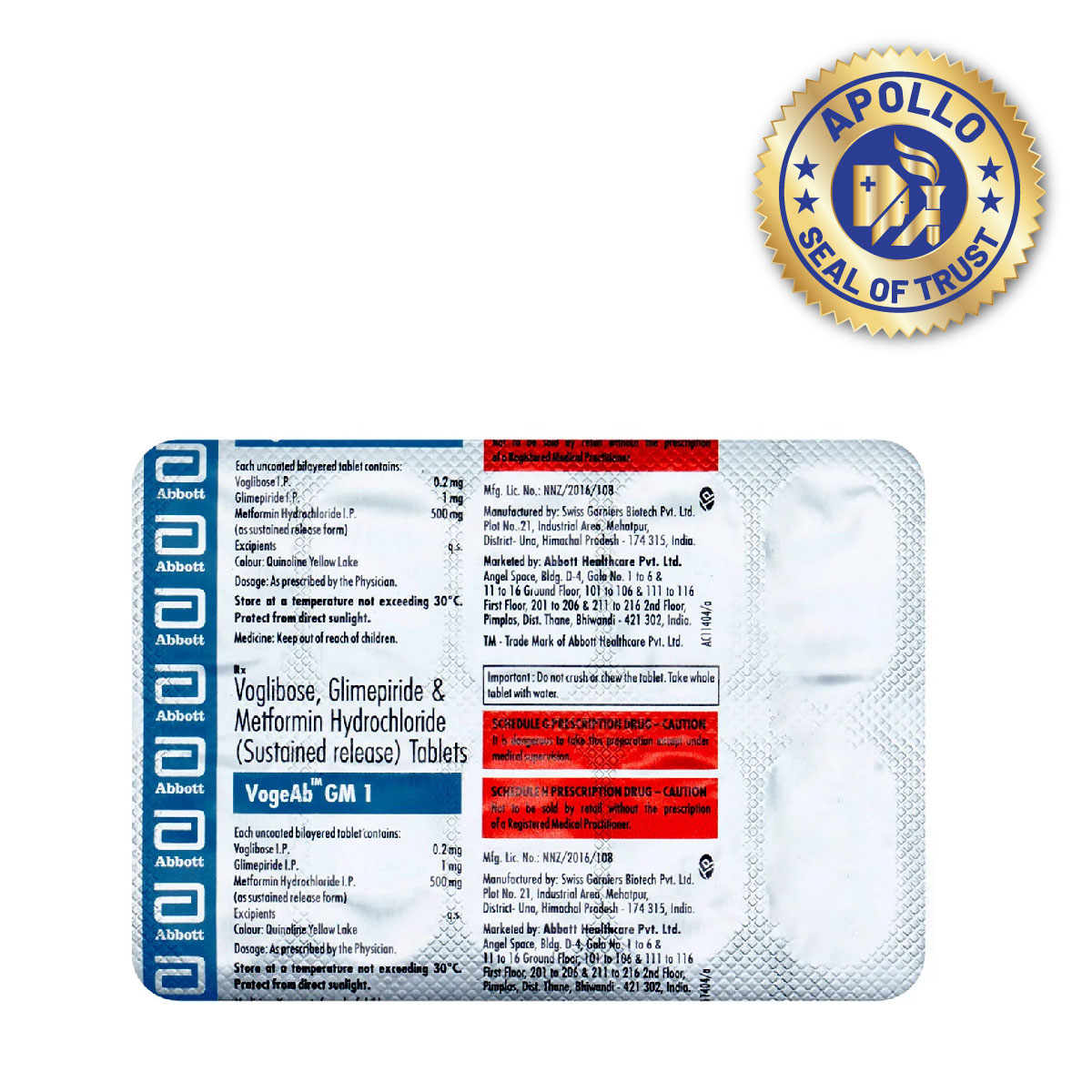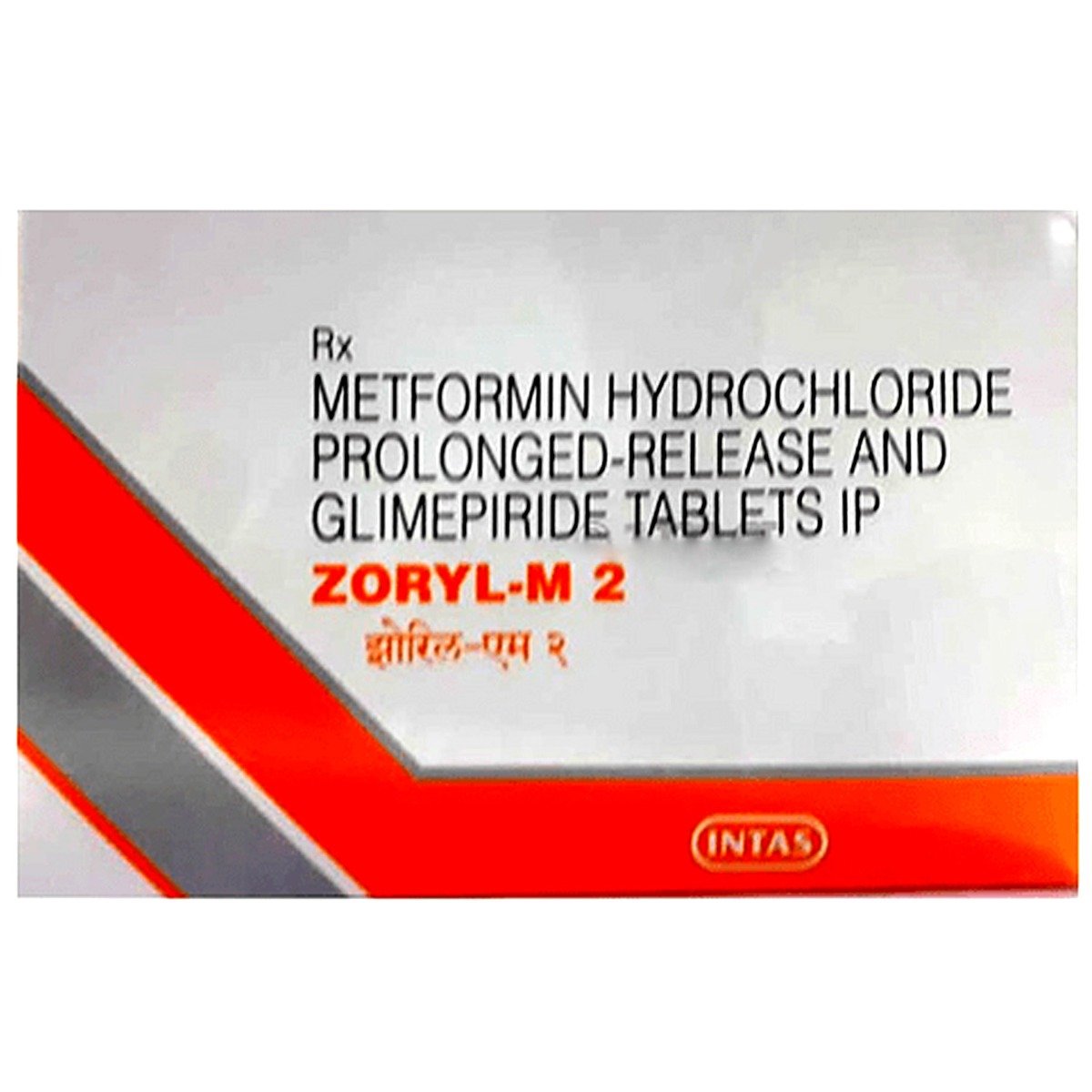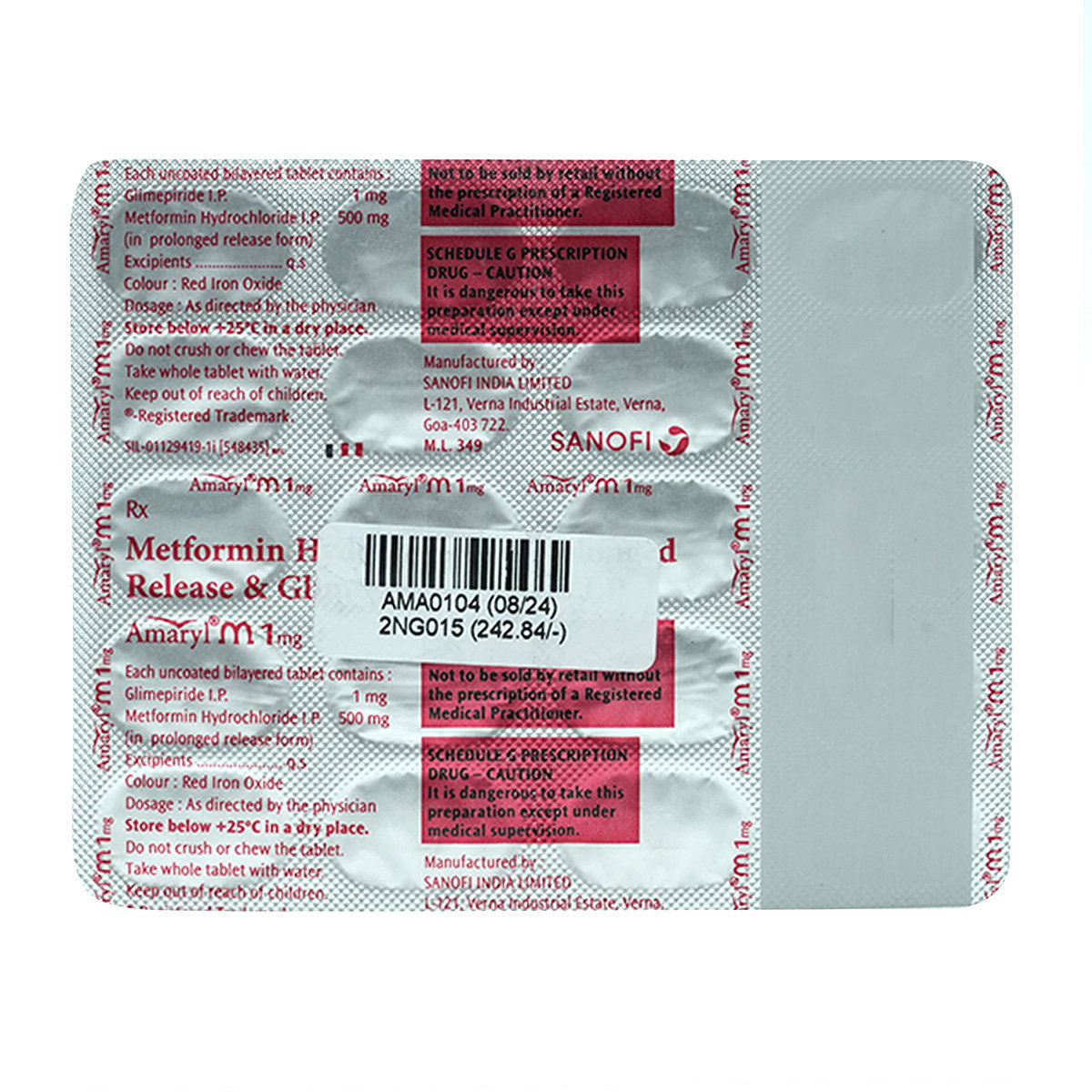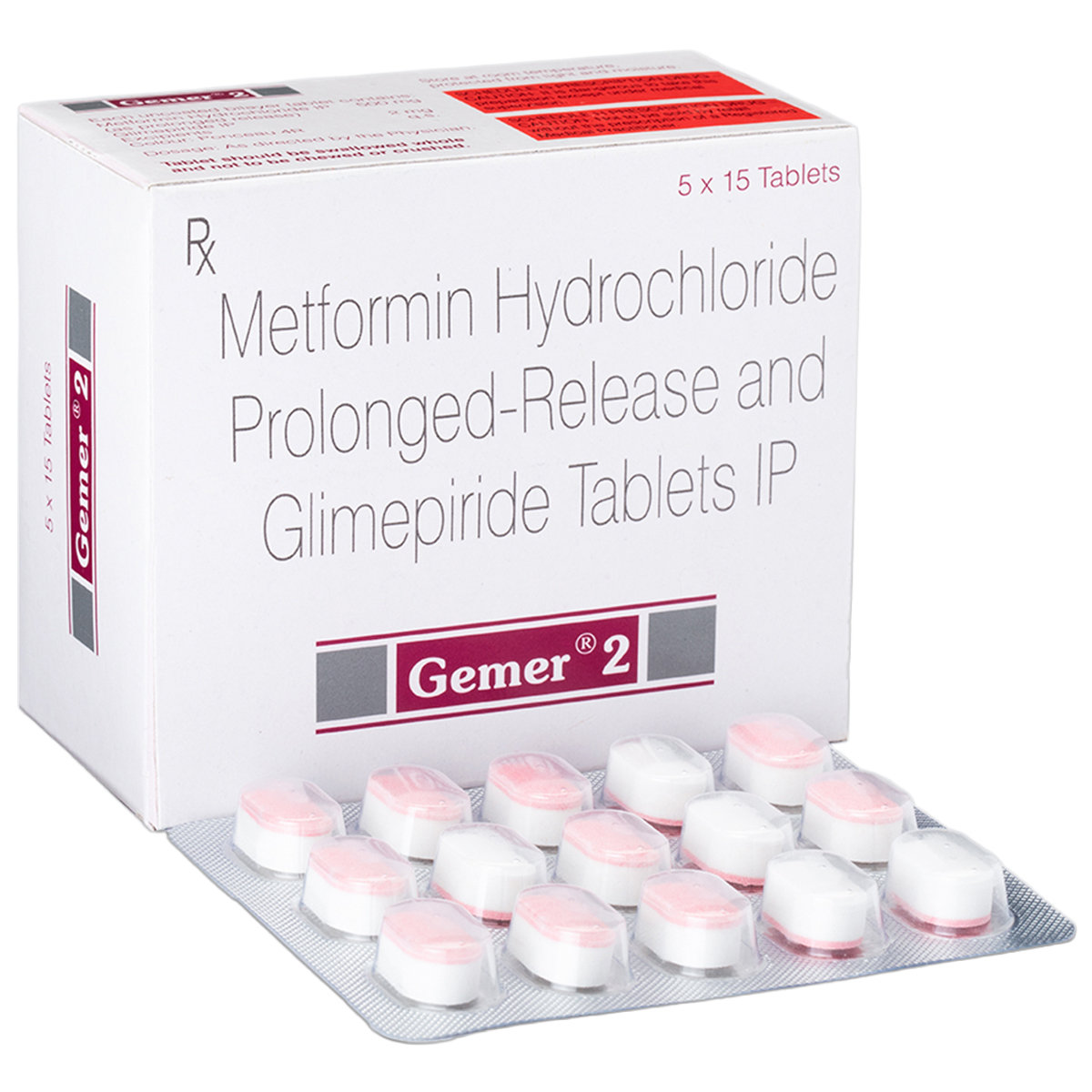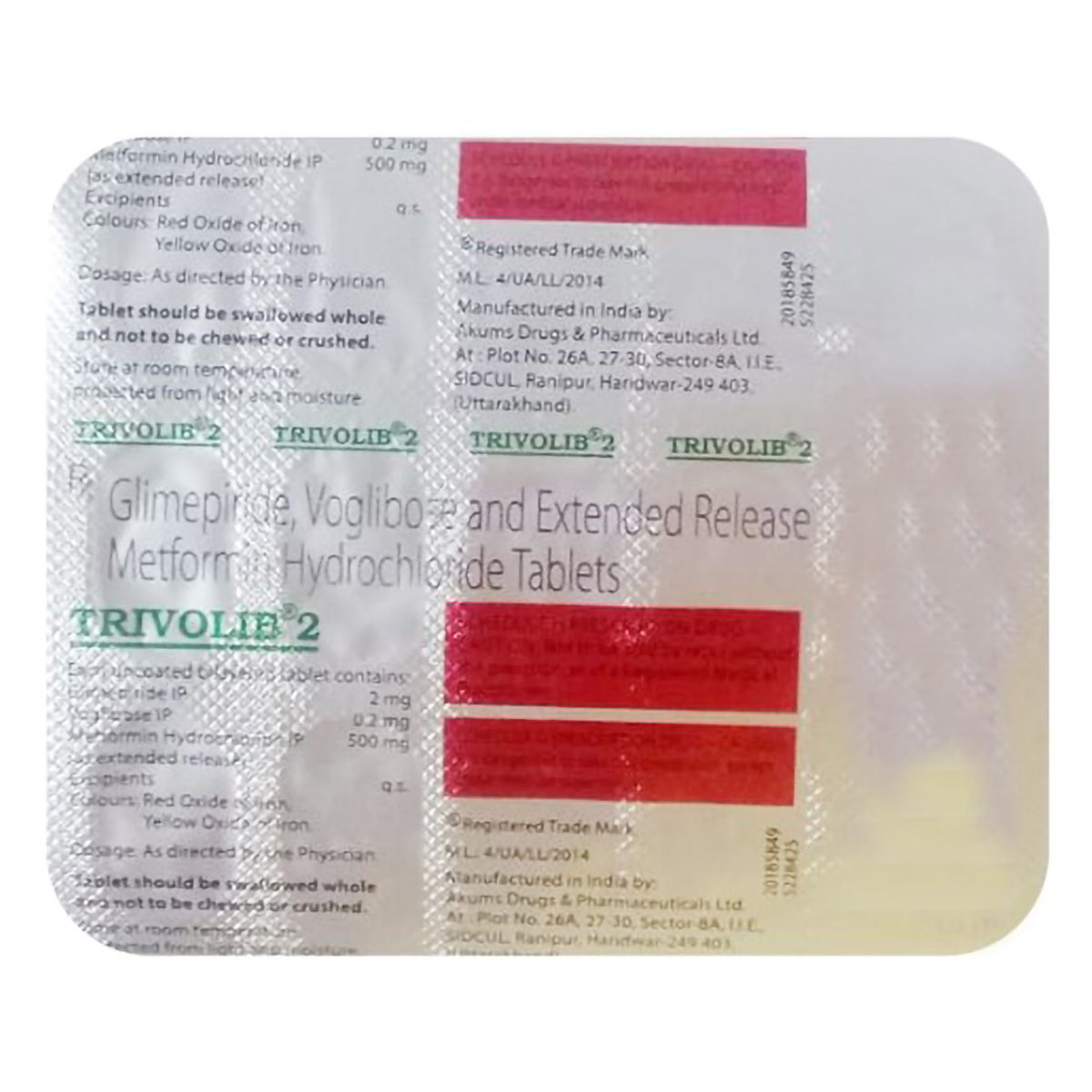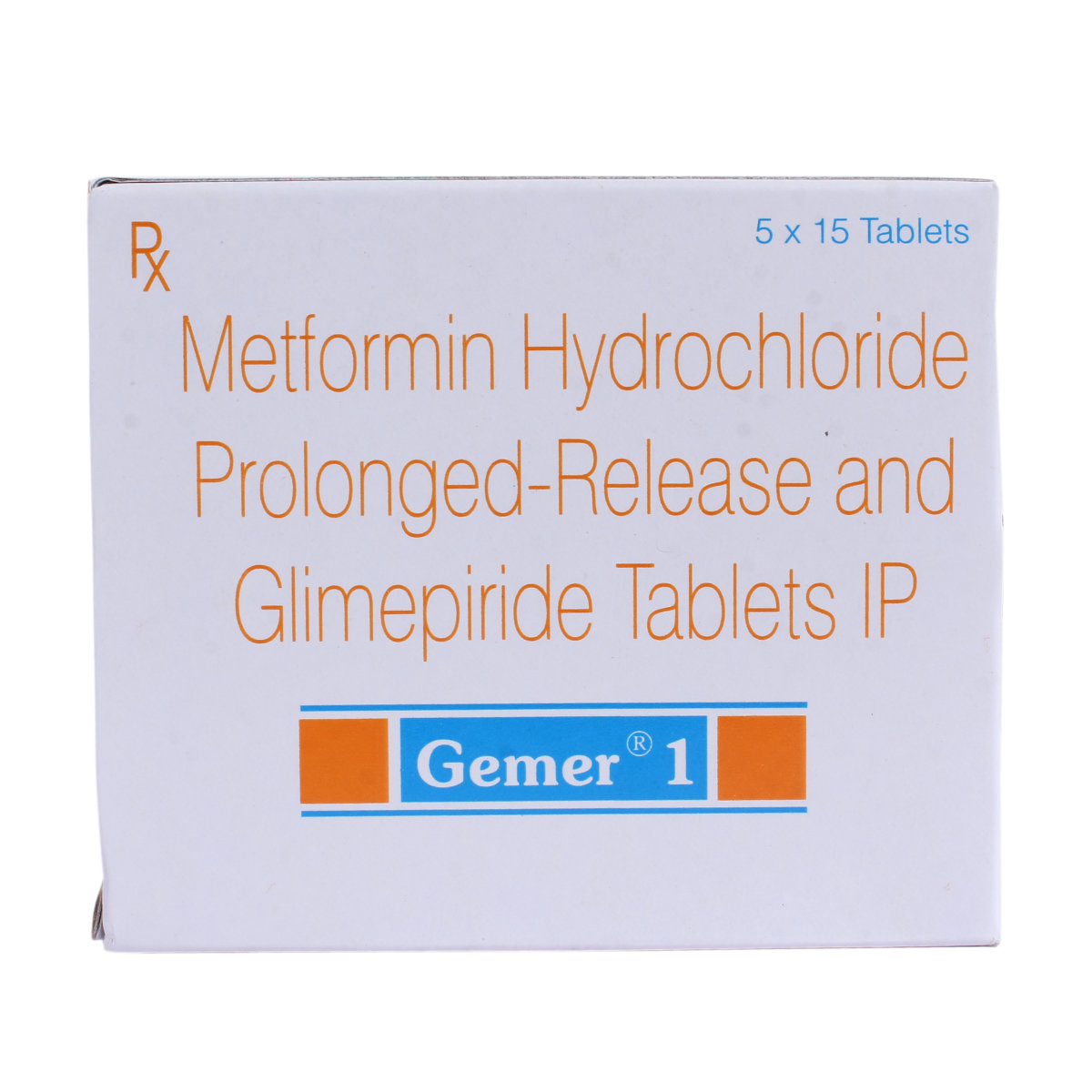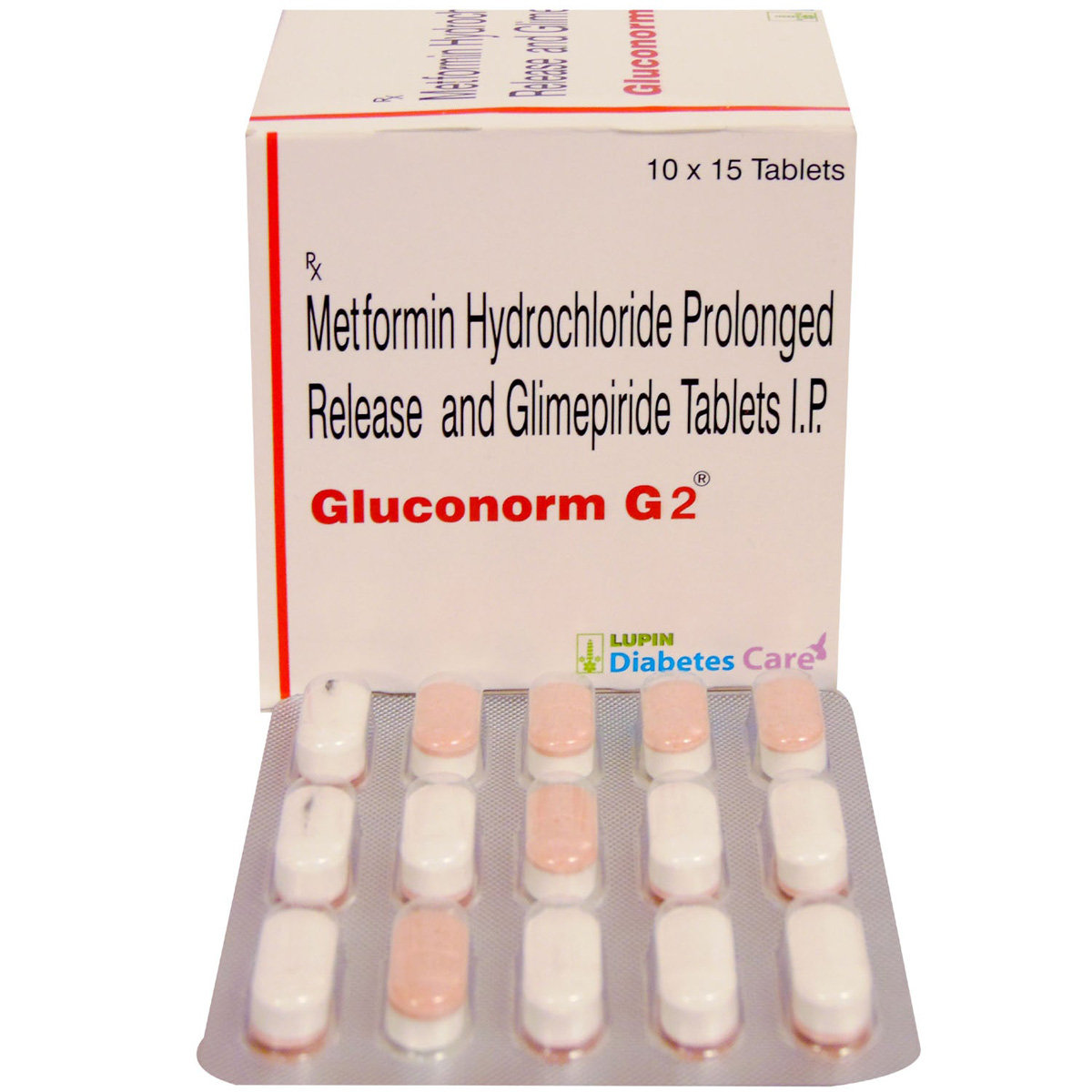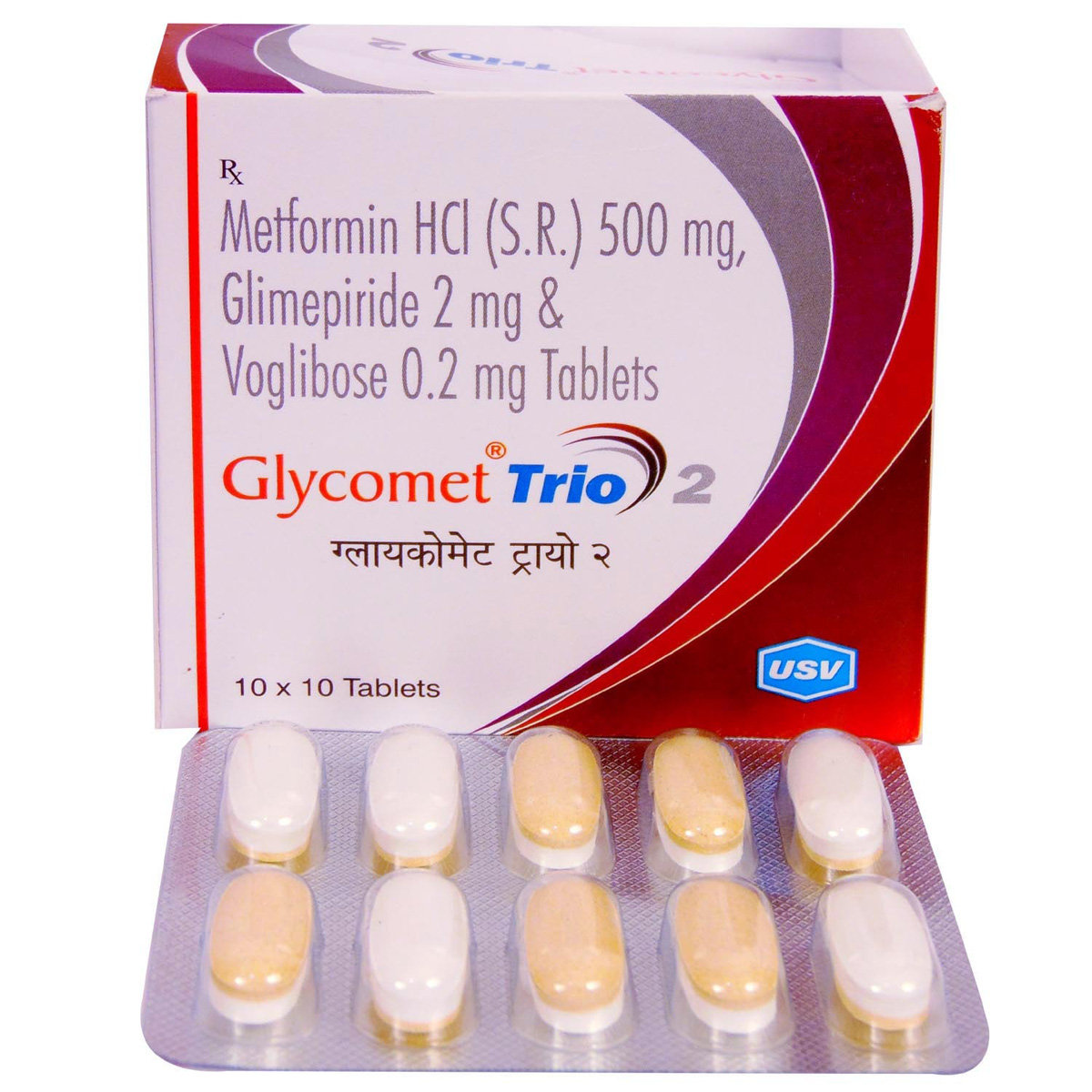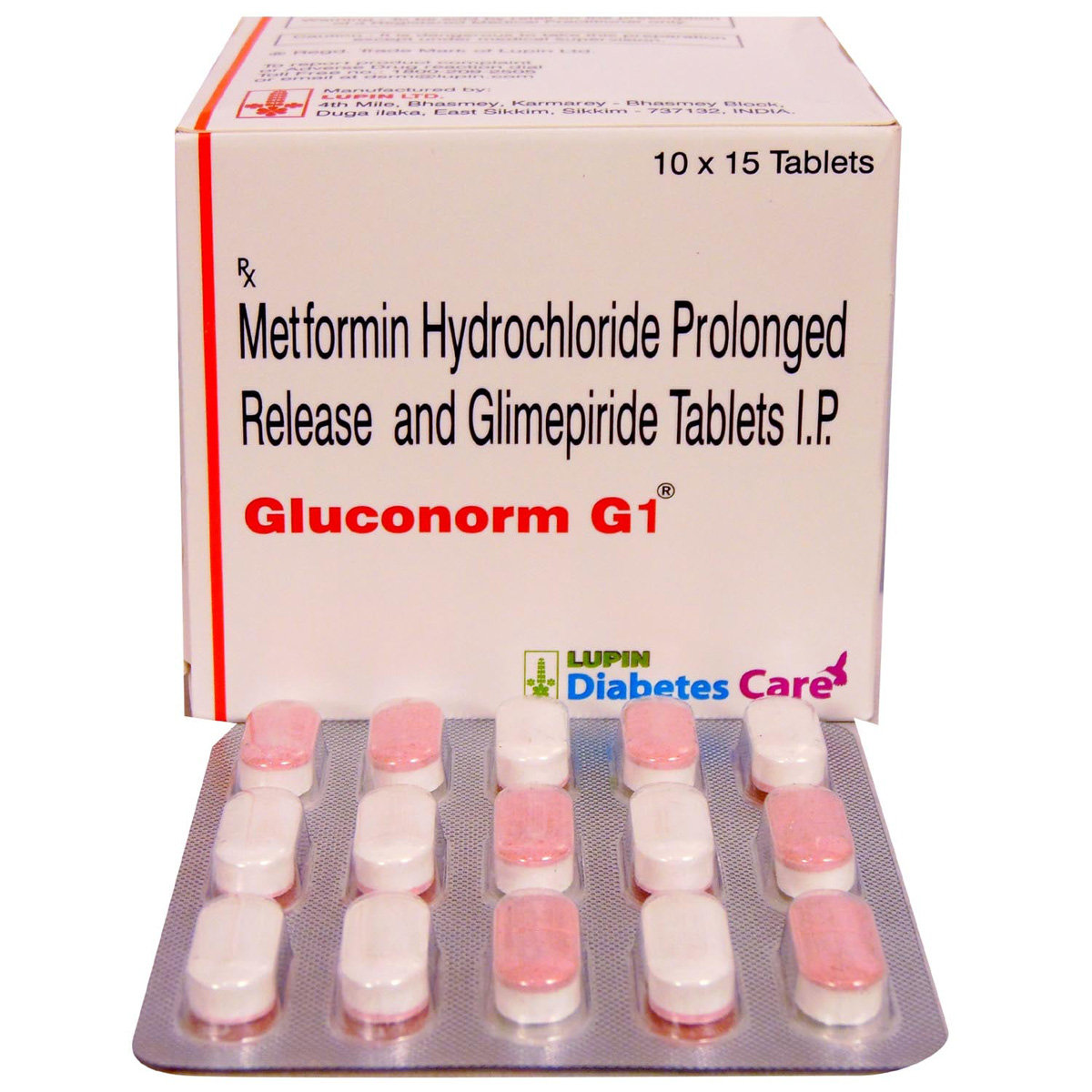Glimepiride
About Glimepiride
Glimepiride is used to lower raised blood sugar levels in Type 2 diabetes mellitus. Type 2 diabetes develops if the body does not produce enough insulin or when the body's insulin does not work as well as it should.
Glimepiride contains glimepiride, which helps the pancreas release more insulin, thereby lowering blood sugar levels. Therefore, it prevents symptoms of type 2 diabetes.
Some people may experience an allergic reaction (skin rash, hives & sensitivity to sun rays), low glucose levels, nausea, headache, and shock. Most of these side effects of Glimepiride do not require medical attention and gradually resolve over time. However, if the side effects persist or worsen, please consult your doctor.
Inform your doctor if you are allergic to Glimepiride. Glimepiride should not be stopped even if you feel better without consulting your doctor as the sugar level keeps changing. Glimepiride should not be taken if you have type 1 diabetes mellitus or severe kidney or liver disease. Please inform your doctor if you have any heart disease or plan to get pregnant or breastfeed.
Uses of Glimepiride
Medicinal Benefits
- Glimepiride is indicated as an adjunct to diet and exercise to improve glycaemic control in patients with type 2 diabetes.
- It helps manage blood glucose levels in patients with diabetes and prevents diabetes-related complications like kidney damage, eye problems, and nerve issues.
- Glimepiride stimulates cells in the pancreas that produce insulin, which helps remove sugar from the blood.
Directions for Use
- Glimepiride should be taken with food.
- Follow your doctor's instructions on the dosage and timing of this medication.
- Swallow Glimepiride as a whole with a glass of water.
- Do not crush, break, or chew it.
Storage
Side Effects of Glimepiride
- Allergic reactions
- Headache
- Nausea
- Blood pressure drop
- Shock
- Abnormal liver function
- Including skin and eye yellowing (jaundice)
- Bile flow issues (cholestasis)
Medicines Containing this Salt
View AllDrug Warnings
- Do not take Glimepiride if you are allergic to any of its components, if you have type 1 diabetes mellitus, diabetic ketoacidosis or diabetic coma.
- Inform the doctor if you have liver or kidney problems, low blood sugar, or circulation problems.
- Glimepiride is not recommended for pregnant women as it may harm the unborn baby. Please consult a doctor if you are pregnant or planning to become pregnant. This medicine may pass into breast milk; therefore, it should be avoided in nursing mothers.
- Glimepiride may decrease alertness in some people. Therefore, drive only if you are alert after taking Glimepiride.
- Avoid alcohol consumption with Glimepiride as it may increase the risk of lactic acidosis (accumulation of lactic acid in the body).
- Beware of symptoms of hypoglycemia (low blood sugar), which include sweating, dizziness, palpitations, shivering, intense thirst, dry mouth, dry skin, frequent urination, etc. Whenever you experience any of these symptoms, immediately consume candies, glucose biscuits, or honey/sugar. Make sure to carry these with you at all times, especially during long travels
Drug Interactions
Drug-Drug interactions: Glimepiride interacts with Vitamins D3, Vitamin C, Vitamin B12, antidiabetic drugs (liraglutide, rosuvastatin, dapagliflozin, metformin, glyburide, insulin, canagliflozin, sitagliptin, empagliflozin), blood pressure-lowering drugs (furosemide, atorvastatin), pain killers (aspirin, ibuprofen, naproxen) & blood thinners (clopidogrel, warfarin).
Drug-Food interactions: Glimepiride should not be taken with Fish Oil (omega-3 polyunsaturated fatty acids) & alcohol. Alcohol intake can increase or decrease the blood sugar reduction action of Glimepiride.
Drug-Disease interactions: Patients with liver/kidney function disorder, heart diseases, low blood sugar, G6PD deficiency and electrolytes imbalance (like low sodium levels in the blood) should avoid intake of Glimepiride.
Drug-Drug Interactions Checker List:
Safety Advice

Alcohol
cautionNot recommended to take Glimepiride with alcohol. Alcohol intake may increase or decrease the blood sugar lowering action of Glimepiride in an unpredictable way resulting in a harmful event.

Pregnancy
cautionGlimepiride is a pregnancy Category C medicine which means that there are no well-controlled studies that have been done in pregnant women. However, if you are taking Glimepiride during pregnancy, stop taking it at least 2 weeks before your due date or as prescribed by your doctor.

Breast Feeding
cautionNot recommended to be taken by breastfeeding mothers. Glimepiride may pass into breast milk and may cause the risk of low blood sugar in the infant. Consult your doctor for further advice.

Driving
cautionNot recommended in patients with fluctuating glucose levels. Glimepiride can reduce the ability to concentrate or react, if your blood sugar is lowered (hypoglycemia) or raised (hyperglycemia) or if you develop visual problems as a result of such conditions. Thus not recommended as the patient can endanger himself or others (e.g. when driving a car or using machines).

Liver
consult your doctorTake Glimepiride with caution, especially if you have a history of liver disease. The dose may be adjusted by your doctor as required.

Kidney
consult your doctorTake Glimepiride with caution, especially if you have a history of kidney disease. The dose may be adjusted by your doctor as required.

Children
unsafeGlimepiride is not approved for use by a person less than 18 years old.
Habit Forming
Diet & Lifestyle Advise
- Do regular exercise such as cycling, walking, jogging, dancing or swimming for a minimum of 30 minutes per day. Invest at least 150 minutes of your week in exercise.
- Maintain healthy body weight as obesity is also related to the onset of diabetes.
- Maintain a low fat and a low sugar diet. Replace carbohydrates-containing foods with whole grains, fruits and vegetables, as carbohydrates turn to sugars, leading to high blood sugar.
- Avoid consumption of alcohol and quit smoking.
Patients Concern
Disease/Condition Glossary
Type 2 diabetes: It is a chronic (long-lasting) condition that keeps the body from properly utilizing insulin. Hence, people affected with type 2 diabetes either do not produce enough insulin, or there is resistance to the action of insulin. Middle-aged or older are most likely to suffer from type 2 diabetes, so it is also known as adult-onset diabetes. Symptoms of type 2 diabetes include increased thirst, frequent urination at night, slow wound healing, increased hunger, fatigue, and blurred vision. In some cases, there may be weight gain while in rare cases weight loss may be observed. The complication of type 2 diabetes also includes nerve problems, kidney problems, the damaged retina of eyes or blindness, loss of limbs, sexual dysfunction, and an increased chance of heart attack or stroke.
FAQs
Glimepiride is used to lower raised blood sugar levels in Type 2 diabetes mellitus (non-insulin-dependent diabetes mellitus - NIDDM).
The Glimepiride contains Glimepiride which acts on insulin-secreting cells called beta cells inside the pancreas and activates calcium channels on cells which lets insulin pass out of the cell. This insulin then makes each cell in the body take up glucose and utilize it, thus lowering raised blood glucose. Therefore, it prevents symptoms of type 2 diabetes.
A patient is advised to take the missed dose as soon as possible or skip to the next dose if it's been too late. A patient should never attempt to take a double dose to compensate for the missed dose as it may prove harmful.
Glimepiride is not recommended with warfarin as these two drugs are contraindicated with each other and hence may result in any harmful symptom when taken together in heart patients.
Avoid intake of Glimepiride and consult a doctor if you have an allergy to sulfa drugs, diabetic ketoacidosis, heart disease, liver or kidney disease, an enzyme deficiency called glucose-6-phosphate dehydrogenase deficiency (G6PD).
Your blood sugar might get decreased, so regular blood glucose monitoring is required. Signs and symptoms of low blood sugar level are feeling very hungry, dizziness, irritability, confusion, anxiety or shakiness. Try to eat or drink a fast-acting sugar source (like fruit juice, hard candy, crackers, raisins or non-diet soda).
No, Glimepiride is only prescribed to treat type 2 diabetes and not type 1 diabetes. If you are type 1 diabetic patient consult with a doctor so that insulin forms can be prescribed for the same.
The patient is advised to talk to a doctor before taking contraceptive pills if he/she is already taking Glimepiride, then the doctor may change the dose of Glimepiride. This is because oral contraceptive pills change body responds to the sugar.
Take Glimepiride for as long as it is prescribed by your doctor. Do not discontinue Glimepiride without consulting your doctor.
The side effects of Glimepiride include nausea, headache, dizziness, and weight gain. If these side effects persist or worsen, please consult your doctor.
The dosage of Glimepiride is decided by your doctor. Use it in the dose and duration as prescribed.
Glimepiride does not cause sleepiness by itself. However, it may cause low blood sugar when used with other anti-diabetic medicine. As a result, you may feel sleepy or have problems in sleeping.
Glimepiride is not recommended for patients with kidney dysfunction. Therefore, if you have any kidney problem, inform your doctor before taking Glimepiride.
No, Glimepiride does not cause memory loss. However, the use of Glimepiride may result in low blood sugar which could impair concentration and alertness.
If you are allergic to Glimepiride, have severe liver or kidney disease, G6PD-deficiency (an inherited condition affecting red blood cells), type 1 diabetes mellitus (insulin-dependent diabetes) or are about to undergo surgery, avoid taking Glimepiride. Additionally, patients who are pregnant or breastfeeding, or planning to conceive should also avoid taking Glimepiride.
Glimepiride takes 2 to 3 hours to lower blood sugar levels. Even if you don’t notice a difference, the medicine is still effective. Keep taking Glimepiride as advised by your doctor and if you have any concerns, please discuss with your doctor.
Overdose of Glimepiride may cause hypoglycaemia (low blood sugar), lasting from 12 to 72 hours, and may recur after an initial recovery. Symptoms may not appear for up to 24 hours after ingestion. Vomiting, nausea and epigastric pain may occur. In case of overdose, please seek medical help immediately.
No, do not take Glimepiride on empty stomach as it may cause too low blood sugar levels and the symptoms include anxiety, dizziness, irritability, shaking, confusion and a fast heartbeat. Therefore, you always take Glimepiride with breakfast or the first meal of the day. It is important that you eat every meal when you are on Glimepiride.
Yes, Glimepiride may cause weight gain. It stimulates the pancreas to release insulin. It may stimulate hunger and cause mild weight gain in some people. To maintain a stable weight, patients are advised to eat a healthy balanced diet and exercise regularly. However, if you notice changes in your weight, or if you change your lifestyle, or you are in a stress situation, inform your doctor as this may require dose adjustment.
Yes, Glimepiride may cause dizziness as a side effect. If you experience this side effect, sit or lie down until the symptoms pass. Also, always carry some sugary food or fruit juice with you in case you experience dizziness while travelling.
It is advisable to avoid high saturated and trans fats foods. Instead, consume fats from nuts and fish. Also, control your intake of carbohydrate as this directly affects your blood sugar.
Yes, Glimepiride is safe to use in prescribed dose and duration. The patient should follow doctor’s recommendations.
Yes, in addition to other necessary nutrients, proteins must be a part of a diabetic's regular diet. Among all the essential nutrients, proteins are one of the main sources of energy. In addition, proteins, which are the building blocks of the human body, decompose into glucose to produce energy. Proteins metabolize significantly more slowly into glucose than carbohydrates do. As a result, it often takes many hours after consumption for the release of energy. Thus, after following a high-protein diet, the blood sugar levels might spike after a few hours.
No, artificial sweeteners are not good for diabetic people. They are made of chemicals that can cause mild to severe side effects. Thus, it is preferable to limit or avoid their use as much as you can.
Yes, uncontrolled diabetes can cause kidney failure. Diabetes over the time may have impact on the kidneys, resulting in a condition called diabetic nephropathy, which is a major cause of kidney failure in diabetic patients. The best way to prevent kidney damage is managing diabetes, changing one’s diet, regular monitoring of sugar levels, routine blood tests, and taking prescribed medications on time.
There is no cure for diabetes. Medication only helps to control diabetes. However, it is advised to maintain proper diet and exercise along with medication to control blood sugar levels.
You are not recommended to consume alcohol while taking Glimepiride as it may increase the hypoglycaemic (blood sugar lowering) action of Glimepiride in an unpredictable way.
Glimepiride should not be taken by pregnant women as there are no adequate data on use of Glimepiride in pregnant women. In case if the patient plans to become pregnant or if a pregnancy is discovered while on treatment with Glimepiride, the treatment should be switched as soon as possible to insulin therapy. Therefore, please discuss with your doctor before taking Glimepiride if you are pregnant or planning pregnancy.

